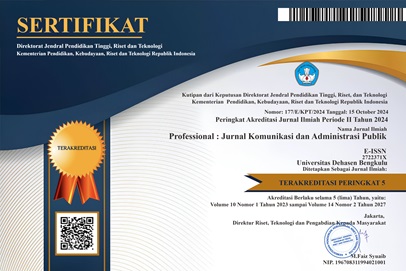Koordinasi Pemerintah Dalam Program Hibah Air Minum Untuk Masyarakat Berpenghasilan Rendah Di Kota Pematang Siantar
Abstract
The drinking water grant program is an effort to accelerate the addition of new house connections (SR) through the application of output-based or measured performance. The drinking water grant program is intended as an additional fund for the Provincial Government or Regency/City Government so that they can carry out their roles and responsibilities in the provision of drinking water services. This study aims to describe the implementation of the coordination of the drinking water grant program between agencies authorized to regulate this matter. The program's target is Low-Income Communities (MBR) in Pematangsiantar City. This study uses a descriptive method with a qualitative approach where the data collection technique uses observation, interview and documentation methods. The data were analyzed through data reduction, data presentation, data triangulation and drawing conclusions. Based on this study related to the direct relationship variable, it was found that there was no evaluation and projection process in program implementation. Based on the Continuity variable, it was found that the target of installing one hundred percent clean water connections that had been targeted earlier was not achieved. The dynamism variable found that the Project Implementation Unit officials had not been able to provide sufficient funds for the construction of the distribution pipeline. The supervised leadership variable found that there was still a sectoral ego so that the coordination that was built did not go well.
Downloads
Copyright (c) 2022 Yuli Assari Butar-Butar, Rudi Kristian P. M

This work is licensed under a Creative Commons Attribution-ShareAlike 4.0 International License.





